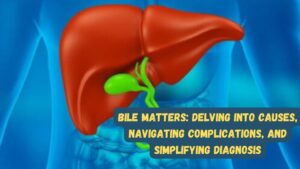Introduction:
Navigating the Risks: The Role of Chocolate, Juice, Cake, and Others in Obesity and Heart Attack

In the modern world, where convenience often takes precedence, our dietary choices play a crucial role in shaping our health outcomes. This article delves into the intricate relationship between popular indulgences like chocolate, juice, cake, and other energy-providing products, and the potential risks they pose to our well-being, particularly in terms of obesity and heart attacks.
The Role of Chocolate,Juice,Cake, and Others
- Chocolate, juice, and cake are often celebrated for their delectable taste and instant energy boost but may harbor hidden threats to our health.
- Researchers have been exploring the intricate connections between these favored treats and the alarming rise in obesity rates and cardiovascular issues.
- Indulging in energy-dense products can contribute to an overconsumption of calories, leading to weight gain and, subsequently, obesity.
- High sugar and fat content in these treats can disrupt metabolic processes, potentially setting the stage for long-term health challenges.
- The heart, a vital organ, can be significantly affected by our dietary choices.
- Chocolate, juice, and cake can contribute to the development of risk factors that contribute to heart attacks.
- Mindful consumption involves consuming these treats in moderation and making informed choices to mitigate potential health risks.
- Balancing indulgence and health is key.
- Alternative options and substitutes can satisfy cravings while promoting overall well-being.
- Healthier dessert recipes and smart beverage choices can help navigate the risks without sacrificing the joy of eating.
Why does chocolate cause obesity?
Chocolate itself doesn’t inherently cause obesity; rather, it’s the excessive consumption of chocolate, particularly varieties high in sugar and saturated fats, that can contribute to weight gain and obesity. Here are some reasons why chocolate, when consumed in excess, may be associated with obesity:
- Caloric Density: Chocolate, especially milk chocolate and certain types of candies, can be high in calories. Consuming an excessive number of calories without burning them off through physical activity can lead to weight gain and, over time, obesity.
- Sugar Content: Many chocolates, especially those in the form of candy bars and confections, contain significant amounts of added sugars. Consuming large quantities of sugar can lead to an increase in overall calorie intake, which, when not balanced with energy expenditure, can contribute to weight gain.
- Fat Content: Some chocolates, especially milk chocolate, can be high in saturated fats. Diets high in saturated fats are associated with weight gain and an increased risk of obesity. These fats are calorie-dense and can contribute to the overall energy imbalance that leads to weight gain.
- Lack of Satiety: Highly processed chocolates, especially those with added sugars and fats, may lack the satiety that comes from more nutrient-dense foods. As a result, people may consume larger quantities of chocolate without feeling full, leading to overeating and increased calorie intake.
- Emotional Eating: Some individuals may turn to chocolate as a form of emotional comfort or stress relief. Emotional eating, especially when not accompanied by genuine hunger, can lead to overconsumption and contribute to weight gain.
It’s important to note that moderate consumption of dark chocolate, which contains antioxidants and may have some cardiovascular benefits, is generally considered part of a balanced diet. However, like any food, it should be enjoyed in moderation as part of an overall healthy lifestyle. Balancing calorie intake with energy expenditure through regular physical activity is key to preventing obesity and maintaining a healthy weight.
Which substances should be avoided to avoid obesity and heart attack?
To reduce the risk of obesity and heart attacks, it’s advisable to minimize or avoid the consumption of certain substances and adopt a balanced and healthy lifestyle. Here are some substances and practices to be mindful of:

- Saturated and Trans Fats: These fats are often found in fried foods, processed snacks, and baked goods. They can contribute to elevated cholesterol levels and increase the risk of heart disease. Opt for healthier fats such as those found in olive oil, avocados, and nuts.
- Added Sugars: Excessive sugar intake is linked to weight gain and an increased risk of obesity. It can also contribute to insulin resistance and other metabolic issues. Limit the consumption of sugary beverages, sweets, and processed foods with added sugars.
- Highly Processed Foods: Processed foods are often high in unhealthy fats, sugars, and salt. They are also typically lower in nutritional value. Choose whole, unprocessed foods like fruits, vegetables, whole grains, and lean proteins.
- Excessive Salt (Sodium): High sodium intake is associated with hypertension and an increased risk of heart disease. Reduce the consumption of processed and packaged foods, as they often contain high levels of sodium. Use herbs and spices to flavor foods instead of relying on salt.
- Alcohol: Excessive alcohol consumption is linked to both obesity and heart issues. While moderate alcohol intake may have certain cardiovascular benefits, excessive drinking can contribute to weight gain and increase the risk of heart disease. If you choose to drink, do so in moderation.
- Tobacco and Smoking: Smoking is a major risk factor for heart disease, and it can also affect weight control. Quitting smoking has numerous health benefits, including a reduced risk of heart attacks and improved overall well-being.
- Lack of Physical Activity: Sedentary lifestyles contribute to obesity and heart-related issues. Regular exercise helps maintain a healthy weight, lowers blood pressure, and improves overall cardiovascular health.
- Stress and Poor Sleep: Chronic stress and inadequate sleep can contribute to weight gain and increase the risk of heart disease. Practice stress-management techniques and prioritize good sleep hygiene.
- Highly Caffeinated and Sugary Beverages: Beverages like sodas, energy drinks, and sugary coffees can contribute to excess calorie intake and weight gain. Opt for water, herbal tea, or other low-calorie, hydrating options.
- Unhealthy Cooking Methods: Avoid frying foods in unhealthy oils and opt for healthier cooking methods like baking, grilling, steaming, or sautéing with heart-healthy oils.
It’s important to note that individual dietary needs and health conditions vary, so it’s advisable to consult with a healthcare professional or a registered dietitian for personalized advice based on your specific health status and goals. Adopting a well-rounded, whole-foods-based diet and maintaining a physically active lifestyle are key components of a heart-healthy and weight-conscious approach.
Conclusion:
As we navigate the complex landscape of dietary choices, understanding the risks associated with popular treats like chocolate, juice, and cake empowers us to make informed decisions. By embracing a mindful and balanced approach to consumption, we can enjoy these delights without compromising our long-term health. Ultimately, the journey toward well-being begins with knowledge and a commitment to making choices that nourish both body and mind.








